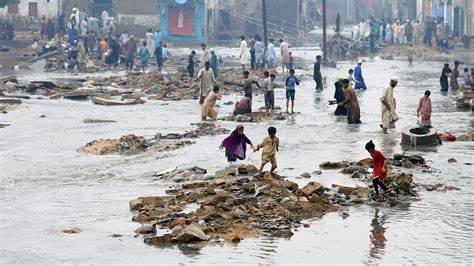Islamabad, Oct 8: Climate Change Effects on Pakistan’s Agriculture Addressing the Climate Crisis in Pakistan
Pakistan is grappling with significant challenges brought on by climate change, particularly affecting its agriculture sector.
As a nation heavily dependent on agriculture, these climate impacts jeopardize food security and the livelihoods of millions of farmers.
Rising temperatures, unpredictable rainfall, and more frequent extreme weather events are fundamentally altering the agricultural landscape.
The erratic climate has resulted in lower crop yields and heightened susceptibility to pests and diseases. For example, heatwaves can damage crops, while excessive rainfall may cause flooding, eroding topsoil and depleting vital nutrients needed for growth.
This instability disrupts planting and harvesting schedules, complicating farmers’ efforts to adapt. Consequently, essential crops like wheat and rice, crucial for Pakistan’s food security, face significant risks.
Additionally, water scarcity is becoming an urgent issue as glacial melt from the Himalayas diminishes and groundwater levels decline.
Given that agriculture consumes a large share of the country’s water resources, effectively managing this scarcity is vital for sustainable farming practices.
To address these challenges, farmers must embrace innovative solutions such as drip irrigation and drought-resistant crop varieties.
Confronting the climate crisis in Pakistan necessitates a comprehensive approach.
The government should implement policies that encourage sustainable farming and invest in climate-resilient infrastructure.
Furthermore, it is critical to raise awareness among farmers about the impacts of climate change and provide them with the tools and knowledge necessary to enhance resilience in the agriculture sector.
